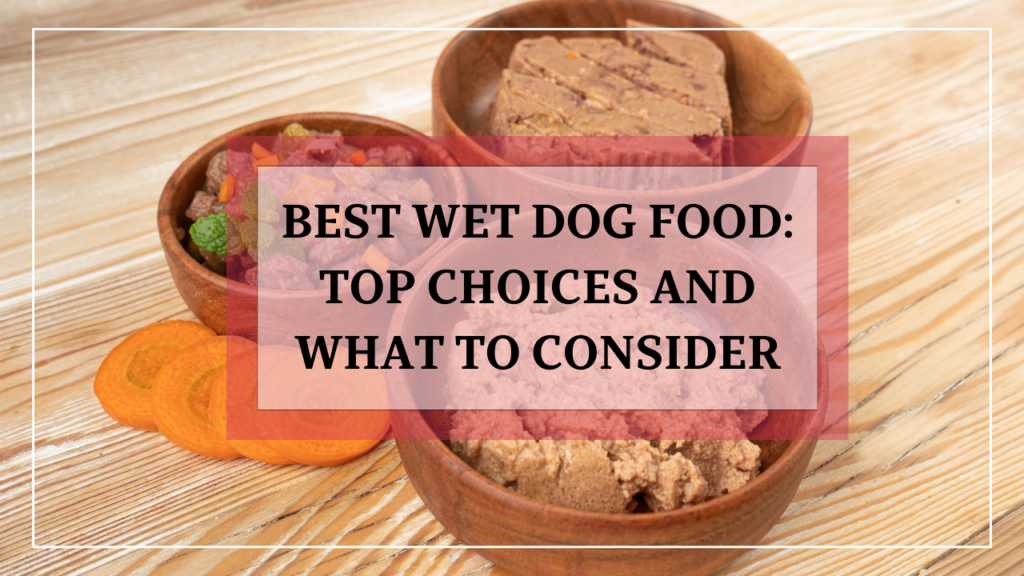Homemade Dog Food for Puppies – Everything You Need to Know
Providing homemade dog food for puppies can be a great way to ensure they get the best nutrition for healthy growth. However, it’s crucial to understand their unique dietary needs and avoid common mistakes. This guide covers everything you need to know, from essential nutrients to vet-approved recipes and feeding guidelines.
Why Consider Homemade Dog Food for Puppies?
Benefits of Homemade Puppy Food vs. Commercial Dog Food
- Quality Control – You control every ingredient, ensuring no harmful additives or fillers.
- No Artificial Preservatives – Commercial foods often contain preservatives and artificial flavors that may not be ideal for puppies.
- Customizable Diet – Homemade food allows for adjustments based on breed, age, allergies, or preferences.
- Fresh and Natural Ingredients – Supports better digestion, shinier coats, and stronger immunity.
Common Issues with Store-Bought Puppy Food
- Fillers like corn, soy, and wheat may cause allergies or digestive issues.
- Excessive Carbohydrates may lead to weight gain or energy crashes.
- Artificial Additives & Preservatives can contribute to long-term health problems.
- Unknown Sourcing – Some brands use low-quality meat by-products.
Can Puppies Eat Homemade Food Exclusively?
Yes, but the food must be nutritionally complete. Puppies require precise calcium, phosphorus, and DHA levels for bone and brain development. Always follow vet-approved recipes.
Nutritional Requirements for Growing Puppies
Key Nutrients Puppies Need for Growth
| Nutrient | Importance | Best Sources |
|---|---|---|
| Protein | Builds muscles and tissues | Chicken, beef, turkey, eggs, fish |
| Healthy Fats | Brain and skin health | Omega-3 (fish oil), Omega-6 (flaxseed) |
| Carbohydrates | Energy source | Brown rice, oats, sweet potatoes |
| Calcium & Phosphorus | Bone strength | Bone meal, dairy alternatives |
| DHA (Docosahexaenoic Acid) | Cognitive development | Fish oil, salmon |
How Puppy Nutrition Differs from Adult Dog Nutrition
- Higher Protein Needs – Puppies need 22-32% protein for growth.
- More Calcium & Phosphorus – Critical for bone development.
- Frequent Meals – Puppies eat 3-4 times a day, while adults eat 1-2 meals.
Is Homemade Dog Food Safe for Puppies?
Risks of Unbalanced Homemade Diets
An improperly balanced diet can lead to nutrient deficiencies, slow growth, or weakened bones. Common issues include:
- Too much fat – May cause obesity or pancreatitis.
- Lack of calcium – Leads to weak bones and fractures.
- Missing vitamins/minerals – Affects overall development.
Common Mistakes to Avoid
- Using imprecise ingredient ratios.
- Ignoring veterinary guidance.
- Relying only on one type of meat without variety.
Importance of Vet-Approved Recipes
A balanced homemade puppy diet should be formulated by a veterinarian or canine nutritionist to meet AAFCO guidelines.
How to Make Homemade Dog Food for Puppies
Step-by-Step Guide to Preparing Puppy Food
- Choose fresh, high-quality ingredients.
- Cook using safe methods: boiling, steaming, or slow cooking.
- Ensure proper portion sizes based on the puppy’s breed and weight.
- Incorporate variety: rotate protein sources, carbs, and healthy fats.
Raw vs. Cooked Homemade Puppy Food – Which Is Better?
| Method | Pros | Cons |
| Raw | Retains more natural nutrients | Risk of bacterial contamination |
| Cooked | Eliminates harmful bacteria | Some nutrient loss |
Verdict: Puppies have sensitive digestive systems, so lightly cooked meals may be safer.
Best Ingredients for Homemade Puppy Food
Puppy-Friendly Proteins
- Chicken
- Turkey
- Salmon
- Beef
Healthy Carbs and Fiber
- Brown rice
- Sweet potatoes
- Oats
Essential Fats for Brain and Coat Health
- Fish oil
- Flaxseed
- Coconut oil
Safe Fruits and Vegetables
- Blueberries
- Carrots
- Spinach
- Pumpkin
Supplements to Consider
- Calcium – For bone growth.
- Probiotics – Supports digestion.
- Multivitamins – Ensures complete nutrition.
Ingredients to Avoid in Homemade Puppy Food
- Toxic Foods: Chocolate, onions, grapes, garlic.
- Harmful Seasonings: Salt, artificial sweeteners, spicy foods.
- Digestive Irritants: Dairy, raw beans, fatty meats.
Best Homemade Dog Food Recipes for Puppies
Easy Chicken and Rice Puppy Food Recipe
Ingredients:
- 2 cups boiled chicken
- 1 cup brown rice
- 1/2 cup carrots
- 1 teaspoon fish oil
Directions:
- Boil chicken, shred it.
- Cook rice and mix with chicken and carrots.
- Add fish oil and serve.
Nutrient-Rich Beef and Sweet Potato Meal
Ingredients:
- 2 cups ground beef
- 1 cup mashed sweet potatoes
- 1/2 cup spinach
Salmon and Oatmeal Recipe for Brain Development
Ingredients:
- 2 cups cooked salmon
- 1 cup oats
- 1 teaspoon flaxseed oil
Slow Cooker Puppy Stew Recipe
Ingredients:
- 1 pound lean turkey
- 1/2 cup chopped carrots
- 1/2 cup green beans
- 1 cup quinoa
How Much Homemade Food Should Puppies Eat?
| Age | Meals per Day | Portion Size |
| 6-12 weeks | 4 meals | Small portions |
| 3-6 months | 3 meals | Moderate portions |
| 6-12 months | 2 meals | Larger portions |
Signs of Overfeeding and Underfeeding
- Overfeeding: Weight gain, diarrhea.
- Underfeeding: Slow growth, low energy.
Storing and Serving Homemade Puppy Food
- Refrigerate for 3-5 days.
- Freeze for up to 3 months.
- Reheat safely using warm water.
Transitioning Your Puppy to Homemade Food
- Gradual switch over 7-10 days.
- Monitor for digestive upset.
- Consult a vet if issues persist.
Final Thoughts on Homemade Dog Food for Puppies
Providing homemade dog food for puppies can be a healthy, rewarding choice. However, ensuring balanced nutrition is essential. Always follow vet-approved recipes, include essential nutrients, and monitor your puppy’s growth and health closely.



